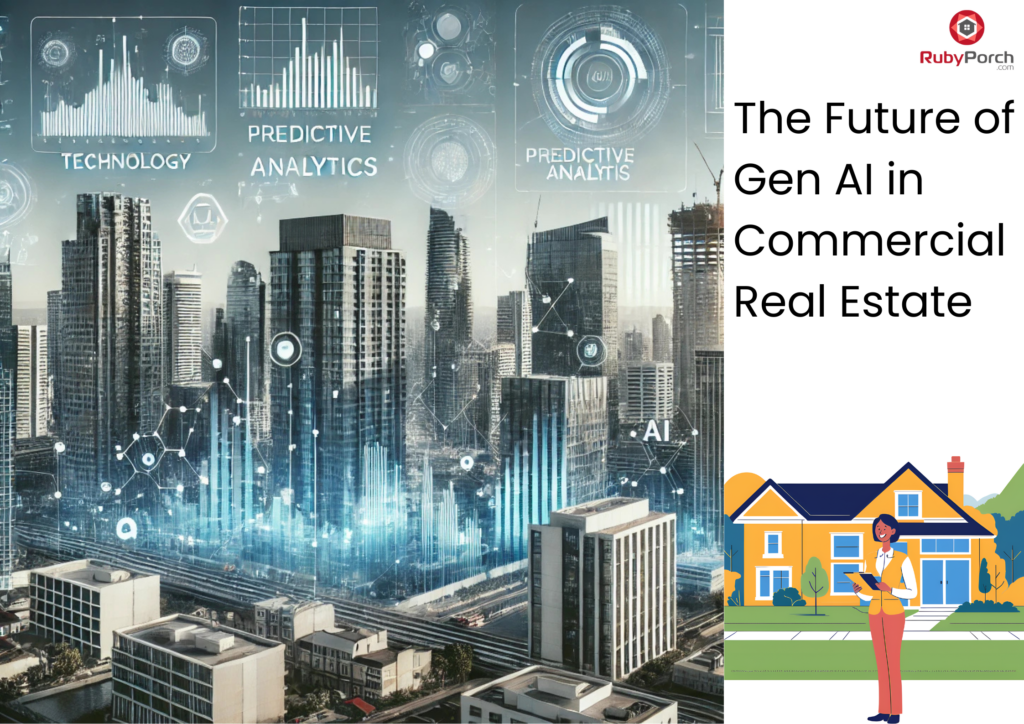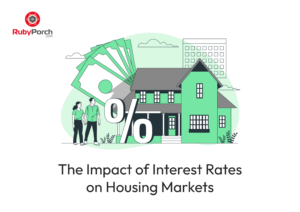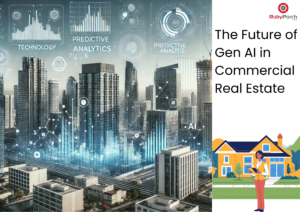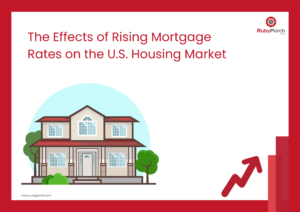The commercial real estate (CRE) industry is undergoing a transformative shift, driven by technological advancements such as artificial intelligence (AI). Among the emerging AI technologies, generative AI is gaining particular attention for its potential to revolutionize how real estate professionals operate, analyze, and optimize their portfolios. From predictive analytics to personalized marketing strategies, generative AI is opening new avenues of growth and efficiency in commercial real estate.
In this blog, we’ll explore the future of generative AI in commercial real estate and its potential to reshape key aspects of the industry. We’ll also delve into how AI in commercial real estate is poised to transform everything from property valuations to tenant relationships.
1. Predictive Analytics and Market Forecasting
One of the most promising applications of AI in commercial real estate is in predictive analytics. By analyzing large datasets, generative AI can forecast market trends, property values, and demand for specific types of commercial properties. These predictive models are crucial for making informed investment decisions and anticipating future market conditions.
How Generative AI Helps in Forecasting:
- Market Trends: Generative AI models can identify patterns and correlations in historical data, such as sales prices, lease terms, and macroeconomic indicators, to predict future market movements.
- Demand Forecasting: AI can estimate future demand for different types of commercial spaces, helping developers and investors align their strategies with emerging trends.
- Pricing Models: Generative AI can create dynamic pricing models that adjust based on current market conditions, ensuring that properties are priced competitively.
With the adoption of generative AI in commercial real estate, market forecasting will become more accurate, allowing stakeholders to make better financial decisions.
2. Property Design and Optimization
Generative AI isn’t just about data analysis; it’s also transforming how commercial spaces are designed. By using AI algorithms, architects and developers can generate optimized layouts and designs based on specific parameters such as space utilization, environmental sustainability, and tenant preferences. This is a game-changer for designing commercial properties that maximize functionality and appeal to tenants.
Applications of AI in Property Design:
- Space Optimization: Generative AI can create multiple design iterations for a property, maximizing usable space and improving flow within the building.
- Sustainability: AI can analyze materials and energy usage to suggest sustainable building designs that reduce the carbon footprint.
- Customization: Generative AI can tailor designs to meet the specific needs of different tenants, whether they are looking for retail spaces, office buildings, or industrial complexes.
In the future, generative AI in commercial real estate will enable architects to push the boundaries of creativity while optimizing for efficiency and sustainability.
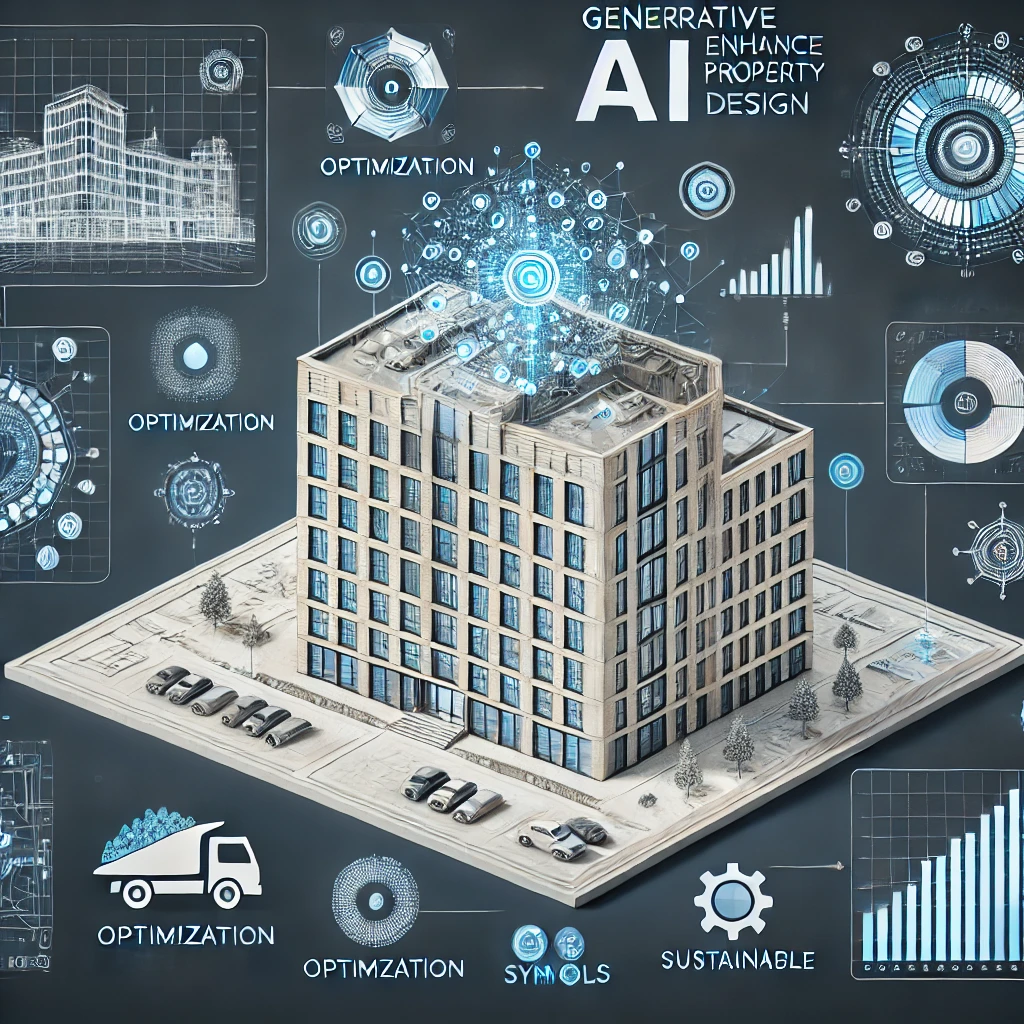
3. Enhancing Tenant Experience
In a highly competitive market, the ability to attract and retain tenants is critical for any commercial real estate business. Generative AI has the potential to revolutionize tenant relations by offering hyper-personalized experiences and improving property management practices.
How AI Enhances Tenant Experience:
- Personalized Services: By analyzing tenant behavior and preferences, generative AI can help property managers offer personalized services, such as recommending nearby amenities or suggesting office layout improvements.
- Smart Contracts: AI can streamline lease agreements and rental negotiations through smart contracts, automating processes like payment schedules and maintenance requests.
- Predictive Maintenance: Using sensors and AI-driven algorithms, property managers can predict maintenance issues before they arise, minimizing downtime and improving tenant satisfaction.
With AI in commercial real estate, property management becomes more proactive, ensuring that tenants receive a seamless, personalized experience.
4. Improving Property Valuation and Investment Strategies
Property valuation is one of the most critical aspects of commercial real estate. Traditionally, this process relies on manual assessments, but with generative AI, valuations can become more precise and data-driven. AI can analyze a wide array of factors—market trends, property conditions, tenant demand, and more—to generate accurate valuations in real-time.
AI’s Role in Property Valuation:
- Data-Driven Valuations: AI algorithms can process vast amounts of data, including comparable property sales, market trends, and economic indicators, to provide accurate property valuations.
- Risk Assessment: Generative AI can help assess risks related to location, market volatility, and tenant turnover, offering insights that are invaluable for investors.
- Investment Portfolio Optimization: By analyzing existing portfolios, AI can suggest diversification strategies, helping investors maximize returns while minimizing risks.
With generative AI in commercial real estate, the valuation process becomes faster, more reliable, and more transparent, providing investors with better tools to make informed decisions.
5. Streamlining Marketing and Sales
Marketing commercial real estate properties has traditionally been a labor-intensive process, requiring real estate agents to create listings, arrange viewings, and negotiate deals. Generative AI can automate and enhance many of these tasks, making it easier to connect buyers and sellers or tenants and landlords.
AI in Commercial Real Estate Marketing:
- Automated Listings: AI can automatically generate property listings based on predefined criteria, including location, size, and market demand.
- Virtual Tours: With generative AI, property tours can be created virtually, allowing potential tenants or buyers to explore a space without needing to visit in person.
- Targeted Marketing: AI algorithms can analyze consumer behavior to target specific segments, delivering personalized ads and offers that are more likely to convert into sales.
Generative AI will not only speed up the marketing process but also make it more efficient, ensuring that the right properties reach the right audiences.
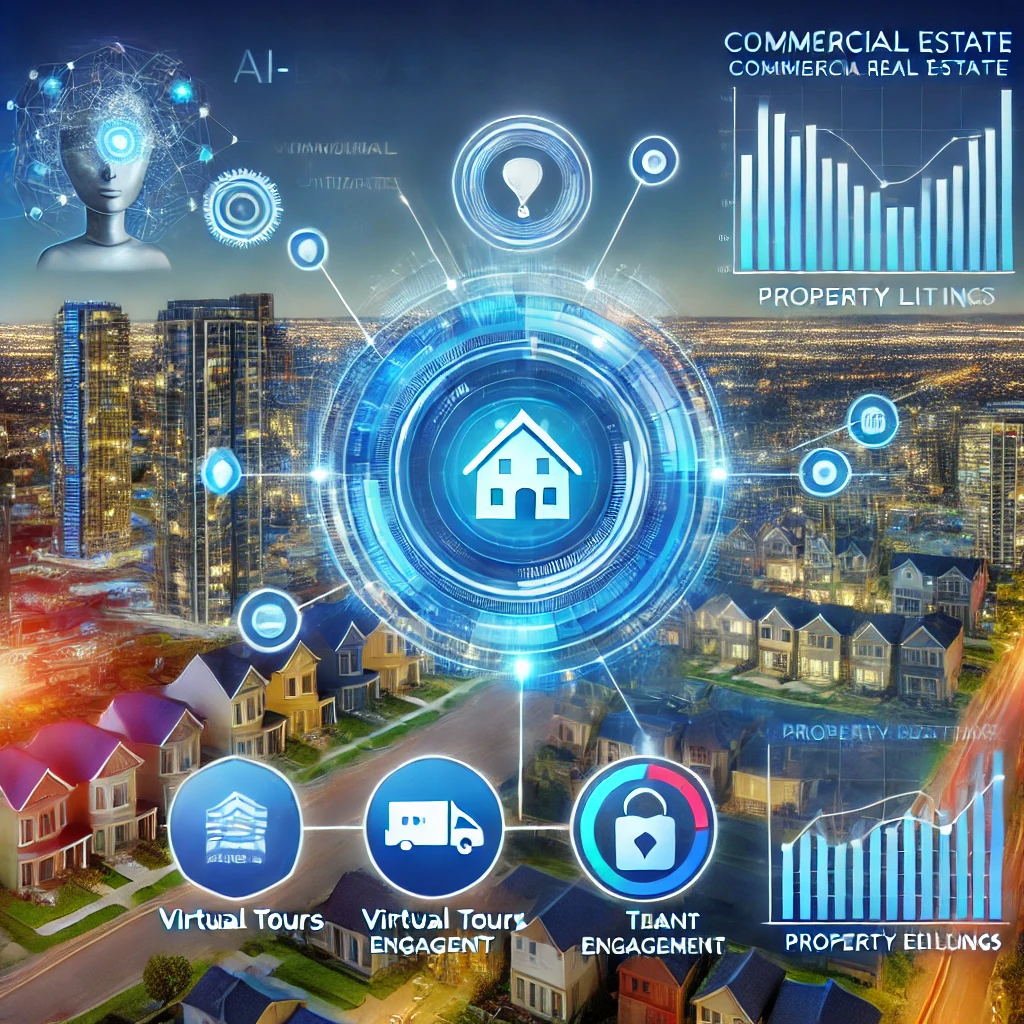
Commonly Asked Questions (FAQs)
- How will AI in commercial real estate impact property investment?
AI in commercial real estate will enable more accurate property valuations, risk assessments, and market predictions, allowing investors to make data-driven decisions. Generative AI can also optimize investment portfolios by identifying high-performing properties. - Can generative AI improve tenant satisfaction in commercial real estate?
Yes, generative AI can analyze tenant behavior and preferences to offer personalized experiences, predictive maintenance, and even automated lease management, all of which contribute to higher tenant satisfaction. - Will generative AI replace real estate agents in commercial real estate?
While generative AI can automate many tasks like marketing and property valuations, it is unlikely to replace real estate agents entirely. Instead, it will augment their abilities, allowing them to focus on building relationships and closing deals. - How does generative AI help in property design?
Generative AI can create optimized designs by analyzing factors like space utilization, energy efficiency, and tenant preferences. This leads to more functional, sustainable, and appealing commercial properties. - What is the future of AI in commercial real estate?
The future of AI in commercial real estate is bright, with continued advancements in generative AI expected to streamline operations, improve tenant experiences, and provide better investment strategies.
Conclusion
The future of generative AI in commercial real estate is full of potential, offering solutions that will fundamentally transform the industry. From predictive analytics and market forecasting to tenant relations and property design, AI is poised to become an indispensable tool for real estate professionals. As technology evolves, commercial real estate will become more data-driven, efficient, and tenant-centric, ushering in a new era of growth and innovation.
Real estate professionals who embrace AI in commercial real estate today will be better positioned to navigate the challenges of tomorrow and capitalize on the opportunities ahead. Whether you’re an investor, property manager, or developer, the future is AI-driven, and it’s time to get on board. Visit RubPorch to learn more about such new trends.



